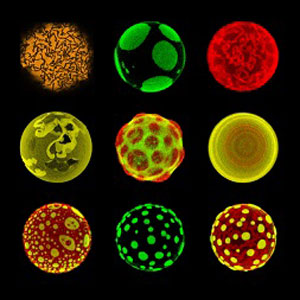 How did life originate? And can scientists create life? These questions not only occupy the minds of scientists interested in the origin of life, but also researchers working with technology of the future. If we can create artificial living systems, we may not only understand the origin of life - we can also revolutionize the future of technology.
How did life originate? And can scientists create life? These questions not only occupy the minds of scientists interested in the origin of life, but also researchers working with technology of the future. If we can create artificial living systems, we may not only understand the origin of life - we can also revolutionize the future of technology.
Oct 20th, 2014
Read more
Scientists hope a major breakthrough could lead to more effective methods for detoxifying dangerous pollutants like PCBs and dioxins. The result is a culmination of 15 years of research and has been published in Nature. It details how certain organisms manage to lower the toxicity of pollutants.
Oct 19th, 2014
Read more
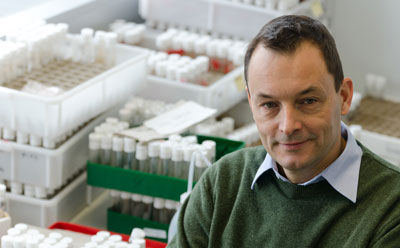 Organisms require flexible genomes in order to adapt to changes in the environment. Scientists have studied genomes of entire populations. They want to know why individuals differ from each other and how these differences are encoded in the DNA. In two review papers they discuss why DNA sequencing of entire groups can be an efficient and cost-effective way to answer these questions.
Organisms require flexible genomes in order to adapt to changes in the environment. Scientists have studied genomes of entire populations. They want to know why individuals differ from each other and how these differences are encoded in the DNA. In two review papers they discuss why DNA sequencing of entire groups can be an efficient and cost-effective way to answer these questions.
Oct 17th, 2014
Read more
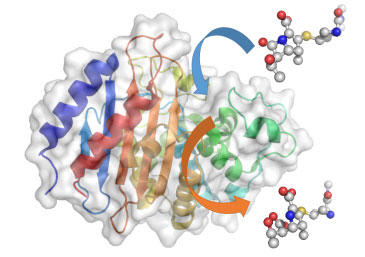 Scientists have used computer simulations to show how bacteria are able to destroy antibiotics - a breakthrough which will help develop drugs which can effectively tackle infections in the future.
Scientists have used computer simulations to show how bacteria are able to destroy antibiotics - a breakthrough which will help develop drugs which can effectively tackle infections in the future.
Oct 17th, 2014
Read more
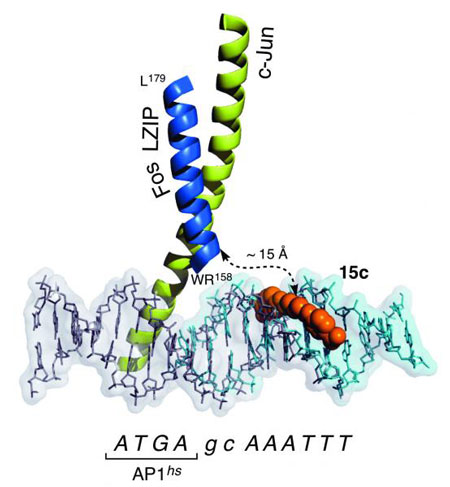 Researchers have introduced a new approach for achieving a highly selective, recognition of designed nine DNA base pairs. The strategy involves the nickel-promoted assembly of a peptide derived from a transcription factor, and a small molecule equipped with a metal-binding unit that acts as heterodimerizing staple.
Researchers have introduced a new approach for achieving a highly selective, recognition of designed nine DNA base pairs. The strategy involves the nickel-promoted assembly of a peptide derived from a transcription factor, and a small molecule equipped with a metal-binding unit that acts as heterodimerizing staple.
Oct 16th, 2014
Read more
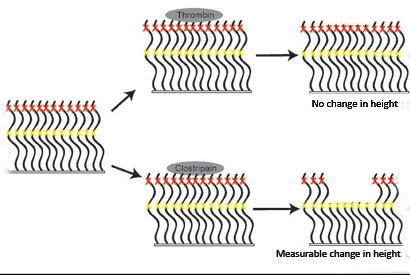 Scientists have taken proteins from nerve cells and used them to create a 'smart' material that is extremely sensitive to its environment. The work could lead to new types of biological sensors, flow valves and controlled drug release systems.
Scientists have taken proteins from nerve cells and used them to create a 'smart' material that is extremely sensitive to its environment. The work could lead to new types of biological sensors, flow valves and controlled drug release systems.
Oct 14th, 2014
Read more
Scientists have created a drug for type 2 diabetes that is switched on by blue light, which they hope will improve treatment of the disease.
Oct 14th, 2014
Read more
A new paper examines security risks and policy questions related to the growing field of synthetic biology. While the author doesn't think the field is ripe for exploitation by terrorists, it does highlight significant gaps in our understanding of the nuts and bolts of lab work in synthetic biology that can contribute to security risks.
Oct 14th, 2014
Read more
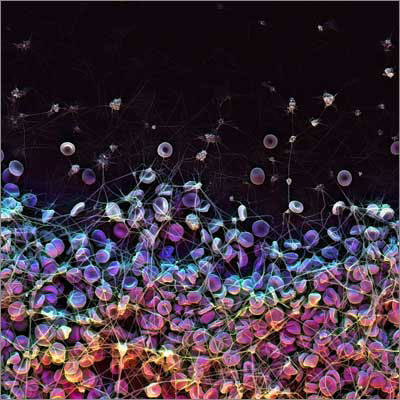 Developed using FDA-approved materials, the coating prevented flowing blood from clotting in a large animal efficacy study.
Developed using FDA-approved materials, the coating prevented flowing blood from clotting in a large animal efficacy study.
Oct 12th, 2014
Read more
The results obtained in this joint research have demonstrated the effectiveness of a low toxicity based subunit vaccine on the use of particulate biomaterial, whose production is cheap and safe. As a result, a particulate vaccine against bluetongue virus, which causes considerable losses in sheep, was obtained.
Oct 10th, 2014
Read more
The repair of large bone defects and damaged cartilage remains a significant clinical challenge, with current strategies unable to reliably generate the cells that make bone and cartilage. Now, researchers are able to produce such cells by exposing embryonic stem cells to a combination of small molecules, mimicking normal development. This strategy is easily scalable, offering great potential in bone and cartilage regenerative medicine.
Oct 7th, 2014
Read more
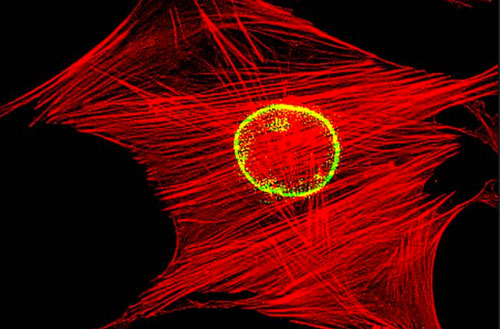 New technique allows scientists to identify populations of rare stem cells in bone marrow.
New technique allows scientists to identify populations of rare stem cells in bone marrow.
Oct 6th, 2014
Read more
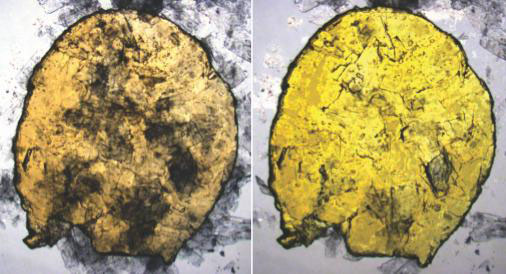 New research has challenged one of the key axioms in biology - that enzymes need water to function. The breakthrough could eventually lead to the development of new industrial catalysts for processing biodiesel.
New research has challenged one of the key axioms in biology - that enzymes need water to function. The breakthrough could eventually lead to the development of new industrial catalysts for processing biodiesel.
Oct 6th, 2014
Read more
 By sorting human fat tissue cells by their expression of a certain gene, scientists were able to retrieve a high yield of cells that showed an especially strong propensity to make bone tissue. With more refinement, the method could improve the ability of surgeons to speed bone healing.
By sorting human fat tissue cells by their expression of a certain gene, scientists were able to retrieve a high yield of cells that showed an especially strong propensity to make bone tissue. With more refinement, the method could improve the ability of surgeons to speed bone healing.
Oct 6th, 2014
Read more
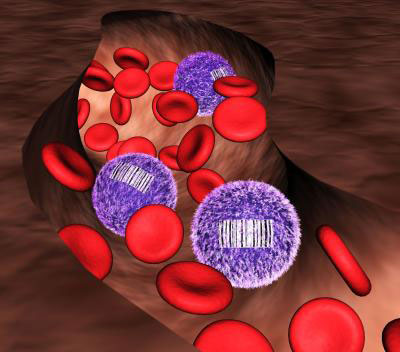 A seven-year-project to develop a barcoding and tracking system for tissue stem cells has revealed previously unrecognized features of normal blood production: new data suggests, surprisingly, that the billions of blood cells that we produce each day are made not by blood stem cells, but rather their less pluripotent descendants, called progenitor cells.
A seven-year-project to develop a barcoding and tracking system for tissue stem cells has revealed previously unrecognized features of normal blood production: new data suggests, surprisingly, that the billions of blood cells that we produce each day are made not by blood stem cells, but rather their less pluripotent descendants, called progenitor cells.
Oct 5th, 2014
Read more
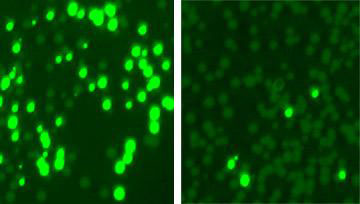 Conventional antibiotics are indiscriminate about what they kill, a trait that can lead to complications for patients and can contribute to the growing problems of antibiotic resistance. But a a 'programmable' antibiotic being developed at Rockefeller would selectively target only the bad bugs, particularly those harboring antibiotic resistance genes, and leave beneficial microbes alone.
Conventional antibiotics are indiscriminate about what they kill, a trait that can lead to complications for patients and can contribute to the growing problems of antibiotic resistance. But a a 'programmable' antibiotic being developed at Rockefeller would selectively target only the bad bugs, particularly those harboring antibiotic resistance genes, and leave beneficial microbes alone.
Oct 5th, 2014
Read more
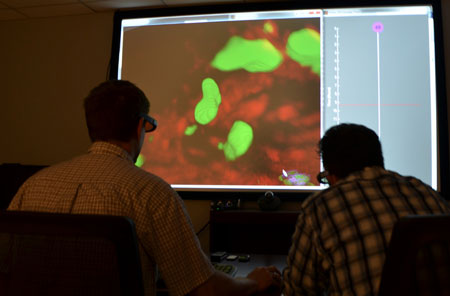 For hundreds of years biologists have studied cells through the lens of a microscope. With a little help from a team of engineers, these scientists could soon be donning 3-D glasses in a home-theater-like lab to take their own fantastic voyage into the petri dish.
For hundreds of years biologists have studied cells through the lens of a microscope. With a little help from a team of engineers, these scientists could soon be donning 3-D glasses in a home-theater-like lab to take their own fantastic voyage into the petri dish.
Oct 3rd, 2014
Read more
 A powerful scientific tool for editing the DNA instructions in a genome can now also be applied to RNA as researchers have demonstrated a means by which the CRISPR/Cas9 protein complex can be programmed to recognize and cleave RNA at sequence-specific target sites.
A powerful scientific tool for editing the DNA instructions in a genome can now also be applied to RNA as researchers have demonstrated a means by which the CRISPR/Cas9 protein complex can be programmed to recognize and cleave RNA at sequence-specific target sites.
Oct 3rd, 2014
Read more
 How did life originate? And can scientists create life? These questions not only occupy the minds of scientists interested in the origin of life, but also researchers working with technology of the future. If we can create artificial living systems, we may not only understand the origin of life - we can also revolutionize the future of technology.
How did life originate? And can scientists create life? These questions not only occupy the minds of scientists interested in the origin of life, but also researchers working with technology of the future. If we can create artificial living systems, we may not only understand the origin of life - we can also revolutionize the future of technology.
 Subscribe to our Biotechnology News feed
Subscribe to our Biotechnology News feed










